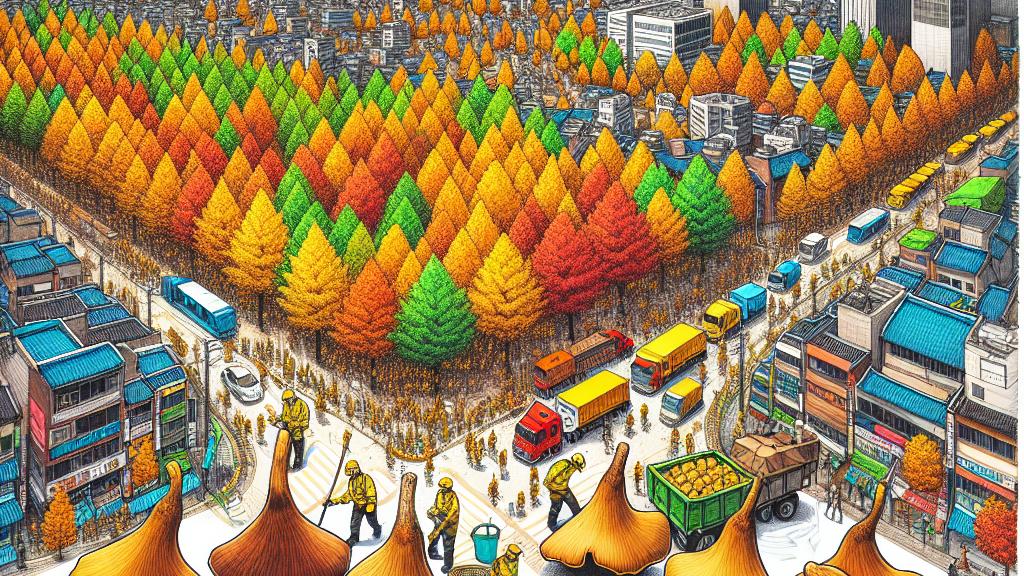Seoul Takes Action Against Odorous Ginkgo Nuts
Overview
- Seoul launches a proactive initiative to eliminate smelly ginkgo nuts before they rot.
- Specialized teams will gather the nuts for local seniors, turning waste into a community resource.
- The remarkable ginkgo tree, existing for over 200 million years, is infamous for its unique leaves and foul odor.

Seoul's Bold Initiative Against Unpleasant Odors
As autumn blankets the vibrant city of Seoul in stunning colors, it also ushers in an all-too-familiar annoyance: the pungent smell of rotting ginkgo nuts. To tackle this annual challenge, the Seoul Metropolitan Government launched an ambitious city-wide initiative on September 23, 2024. Specialized teams equipped with state-of-the-art tools are set to mobilize across all 25 districts, meticulously targeting approximately 25,000 female ginkgo trees—known for their odorous fruits. By proactively removing these troublesome nuts before they hit the ground and begin to decay, the city aims not only to preserve a pleasant environment but also to enhance the overall experience of enjoying the season’s striking beauty, preventing any unpleasant odors that may hinder leisurely strolls.
Empowering Community Through Sustainability Initiatives
This initiative transcends mere cleanliness; it embodies a strong commitment to community empowerment and sustainability. Once collected, the ginkgo nuts will undergo rigorous safety inspections to ensure they are safe for consumption. After passing these checks, these nutritious seeds will be distributed to local seniors and social welfare organizations, transforming what could have been an environmental waste issue into a valuable community resource. This strategic reuse not only highlights the city's dedication to social responsibility but also fosters active participation from residents, showcasing an impressive model of how urban planning can respond to public concerns. By addressing citizen feedback on ginkgo trees, the initiative solidifies community bonds, demonstrating how environmental challenges can be turned into opportunities for goodwill and support.
The Ginkgo Tree: A Marvel of Nature’s Evolution
The ginkgo tree, often called a 'living fossil,' embodies resilience and historical significance, captivating botanists and nature lovers alike. Surviving for over 200 million years, this unique species has gracefully endured various environmental shifts, including the reign of the dinosaurs. Renowned for its distinctive fan-shaped leaves, the ginkgo not only beautifies urban landscapes but introduces a curious aspect to its character—the infamous odor of its fruit, often described in less than flattering terms. However, this quirky quality has not hindered its popularity; instead, it prompts intriguing conversations about nature's adaptability and its role in urban settings. From enhancing biodiversity to promoting environmental awareness, the ginkgo serves as a poignant reminder of nature's enduring legacy and a call for cohabitation between urban development and ecological stewardship. By embracing this ancient tree, Seoul encourages a deeper appreciation for the intertwined relationship between human life and the natural world.

Loading...